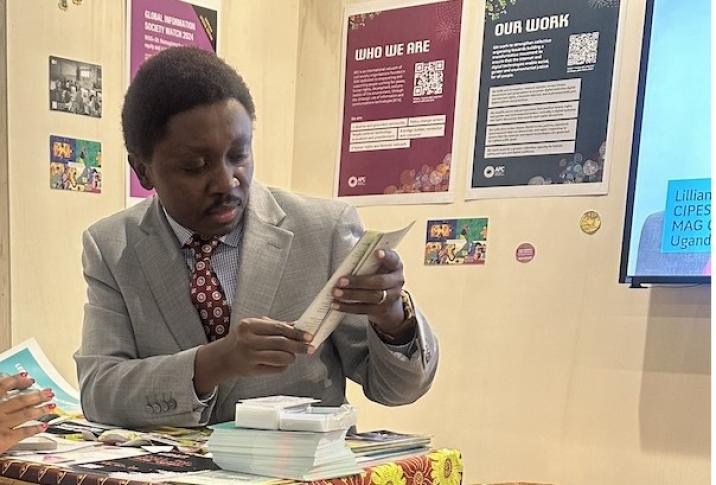
As the global internet governance community is thinking, strategising and advocating for the future of the Internet Governance Forum (IGF), which will be decided in December 2025, the future of the national, sub-regional, regional and youth IGF initiatives, better known as NRIs, was also discussed at various instances during this year’s global event. I attended a few sessions on this theme and met with participants with whom I discussed the same topic, which resulted in the following tips and ideas that I believe APC members running or involved in NRIs might find useful.
The NRIs are independent and locally led initiatives which, according to many, have more impact than the global IGF, because they directly deal with local issues and could therefore directly influence the improvement and development of the digital space and landscape in the country or region where they are being held.
Despite their direct connection with impacted communities, which highlights the importance of strengthening local and regional internet governance mechanisms, ensuring the sustainability of NRIs remains a common challenge. And sustainability here means being able to hold an event year after year, which also requires access to various funding streams. A good number of NRIs, especially in Africa, haven’t been able to have recurrent events, and this affects and reduces their impact on local relevant policy conversations and weakens their desired impact and outcomes.
From my time at the IGF 2025, I was able to compile the following alternatives for NRIs that desire to improve their sustainability:
- A strong secretariat: This is the multistakeholder group that convenes and runs the annual initiative. It is usually headed up by either a non-profit organisation, such as a local chapter of the Internet Society (ISOC), the ccTLD (country code top-level domain) operator, or a legally registered local IGF, as chosen by the multistakeholder team. When this entity is well structured and well organised, it leads to a sustainable NRI.
- A broad pool of funders and supporters: So far, the ISOC Foundation and the Internet Governance Forum Support Association (IGFSA) are the major supporters of NRIs. But some initiatives are able to raise resources from other entities such as the private sector, which could include the local telecom operators or the ccTLD operator, among others. This is made even easier if the multistakeholder team has a member from the private sector who knows how to speak their language and can help with fundraising on that side.
- Engage with policy makers: Members of parliament from across the world are more and more present at the global IGF, but fewer are involved in their national or regional IGF, which is something that the multistakeholder team needs to leverage. When these are approached and involved, including through a seat in the local IGF’s Multistakeholder Advisory Group (MAG), this has positive outcomes in terms of policy development and in attracting more funding and therefore ensuring sustainability.
I heard from a few NRIs who confirmed having put either one or a combination of these alternatives into practice, and it has proven to be successful, mainly by reducing the recurring burden of fundraising for the initiative and therefore enabling more recurrent events with greater impact on local policy conversations.
In my own country, the Democratic Republic of Congo (DRC), we were successfully able to attract the attention of policy makers, which resulted in the 2025 DRC IGF being held inside the parliament, with their financial support added to what we received from traditional supporters, increasing the visibility of the initiative. This also helped attract high-profile speakers and attendees, especially from the government, which usually tends to be absent.
At the global IGF 2025 in Lillestrøm, Norway, the DRC had at least six members of parliament attending, and we look forward to engaging them in our policy-related advocacy work for progressive change. Their presence in Lillestrøm stemmed from their engagement in our local NRI, which highlighted local policy issues, and a report with recommendations was shared with them as well. Some of them confessed that after being part of local conversations and then attending the global IGF, their perspectives were widened, as they had the opportunity to hear from members of parliament from other countries and learn about the initiatives that their peers are carrying out to improve the ICT policy landscape in their respective countries.
As an example, in the DRC, according to data from the telecoms regulator, as of the end of 2024, the mobile phone penetration rate stood at 67% and mobile internet at 34.5%, which speaks to the need to work on internet connectivity. The rate of digital literacy is still very low, which leads to misinformation and the spread of fake news. Although the legislation has evolved positively lately, there are some areas that still need to be regulated, such as a law on access to information, data governance, and fighting against technology-facilitated gender-based violence – to name a few. Through their participation in the global IGF, our legislators shared that they were energised as they received global perspectives on many of these policy-related challenges, and they promised to join hand with local experts.
I thank APC for supporting my participation in the IGF 2025 through the Member Engagement and Travel Fund (METF), which allowed me to network and share insights as well as spend some quality time at the APC and African School on Internet Governance (AfriSIG) booths, speaking highly about our work at Rudi International as well as for the broader APC network.
Arsène Tungali is social entrepreneur and the executive director and co-founder of Rudi International, a non-profit organisation and member of the APC network based in Goma, Democratic Republic of Congo.